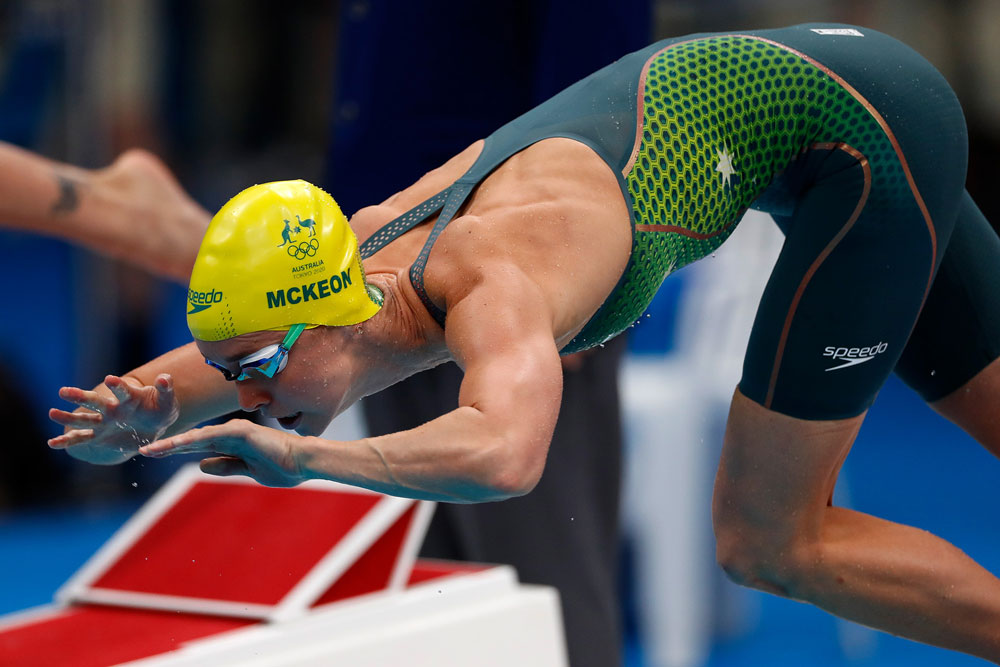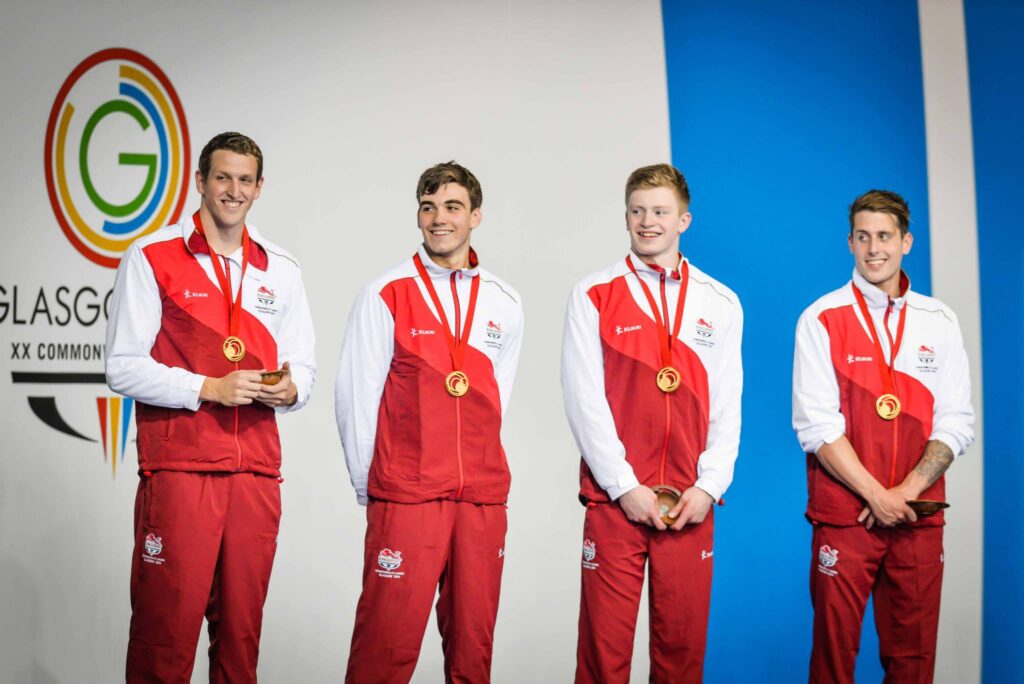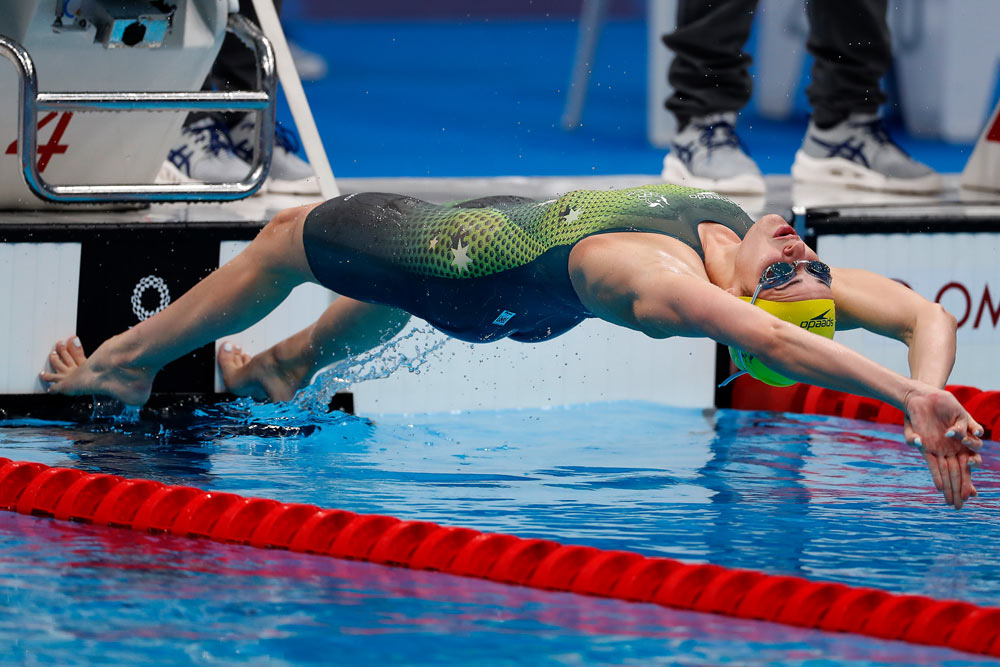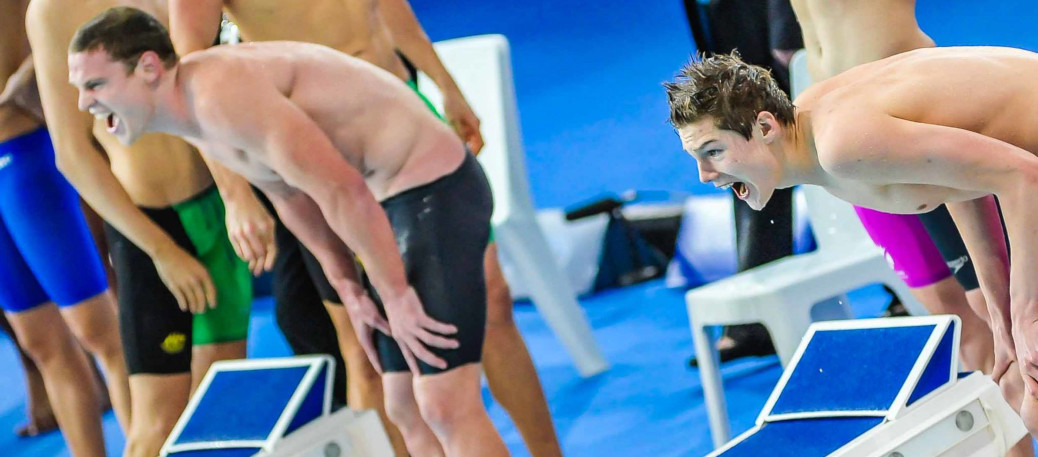The relays have always produced some memorable moments at the Commonwealth Games, from the classic 4×200 head to head in Manchester to the epic four way battle in the men’s equivalent in Melbourne, to the English hare being chased down by the Aussie greyhounds in the men’s medley relay in Glasgow.
That those three events all involved England and Australia is not a great surprise given the relative strengths of the Commonwealth nations, but Scotland and South Africa have been known to insert themselves into the fray to upset their bigger rivals on many occasions.
2022 promises to be no less dramatic with a number of epic showdowns in prospect. Here’s how events might go down in Birmingham
Women’s Relays
Australia will take a clean sweep. It’s the reality of the situation, that unless they cop a disqualification, Australia will travel home with the gold in all three women’s relays.

Canada may have given them a run for their money but shorn of Penny Oleksiak, Kayla Sanchez and Taylor Ruck they have slipped back into the pack and will instead be battling for the minor places. England will fancy their chances of stealing onto the second step of the podium in all three events but it would seem to be the case that those three teams will occupy all 9 medal spots between them. With a following wind however, Scotland may just fancy their chances of upsetting that prediction in the medley relay.
Men’s Relays
Let’s start again from the premise that Australia are the team to beat in each of the men’s relays. That’s a less reasonable position to begin from than it is for the women, and it is far from a done deal here with England in particular jostling for the lead in all three events.
Starting with the 4×1, any team that can boast the arch anchor leg of Kyle Chalmers will be tough to beat, but from the world silver medal quartet they will be without Jack Cartwright who is not on the roster for Birmingham, so may take a step back towards the pack. That opens the door for an English quartet picked from Lewis Burras, Jacob Whittle, James Guy, Ed Mildred and Tom Dean who may fancy their chances of being the first England team to win the event. Canada head the battle for Bronze, with South Africa maybe the left field choice to make the top 3.
Stepping up to the 4×2 and the Anglo-Australian battle is probably the most likely for gold, reflecting the fact that an all English quartet representing GB finished just 0.5s behind the green and gold at world championships. This time round, the same quartet will likely be in the water for Australia, but England can draw on Cameron Kurle in addition. As well as Joe Litchfield swam in Budapest, that offers a potential 1 second improvement, which makes this a tough one to definitively call either way, England perhaps the slight favourite.
Behind them, this could be Wales’ best chance for a relay medal, fielding as they can Matt Richards, Calum Jarvis, Dan Jervis and Kieren Bird, they are probably the best of the rest, but Scotland have a lot of latent potential here, while Canada and South Africa seem to have three quarters of a competitive team each which could take the bronze battle to the wire.

The medley relay is the exception to the Aussie rule – Britain with four English swimmers finished half a second ahead of Australia in Budapest and will be boosted in Birmingham by the return of Adam Peaty. That makes them strong favourites for the gold here, which would continue a remarkable run of success in that event for England and GB kicked off by victory at Glasgow in 2014. Australia of course remain favourites for silver with a real dogfight in prospect for bronze between Canada and South Africa and maybe Wales, with Scotland looking like they may be a little way back.
Mixed relays
The mixed relays make their Commonwealth Games debut in 2022, and it’s clear that they are worth their spot. While all of the women’s events are straight finals and the men’s teams just about warrant two heats, the mixed relays have received 19 and 20 entries, giving far more countries the opportunity to field relay squads.
For the mixed freestyle relay, Australia are again head and shoulders above the rest – after all they won the world title and broke the world record in Budapest – and start as strong favourites. Canada, silver medallist at worlds but with both of their women from that quartet now missing will be looking over their shoulders at England, who can field the team that finished 4th as Great Britain. The battle for silver could be a close one between those two, but Scotland have a lot of potential upside here, with a likely foursome of Duncan Scott, Stephen Milne, Evie Davis and Lucy Hope, and could challenge. Any team that includes Scott can never be counted out.
As normal the mixed medley relay could provide some of the biggest drama of the team events and also some of the biggest questions. Inevitably Australia will be strong, and won silver in Budapest with a squad of Kaylee McKeown, Zac Stubblety-Cook, Matt Temple and Shayna Jack. They could stick with that strategy, perhaps with Mollie O’Callaghan or Emma McKeon on the anchor, or they could put McKeon on fly to open the door for Kyle Chalmers on the anchor as they did in Tokyo last year – any of those options will be tough to beat.

The GB quartet was fourth in that world final, just 0.5s behind the Aussies without Peaty who will certainly come back in for England and potentially provides a swing of 1 second on the breaststroke leg. Conversely Medi Harris will be with Wales which throws the spotlight for the backstroke firmly onto Lauren Cox, making her international bow in Birmingham. If she can hold her own against McKeown, England, powered on by Peaty and with James Guy and one of Freya Anderson or Anna Hopkin on the back end could yet spring an upset.
Behind the top two, Canada will suffer from their lack of a competitive breaststroker of either sex but are super strong with Kylie Masse on backstroke and Maggie Macneil on fly backed up by Josh Liendo on the anchor so rely on James Dergousoff swimming beyond himself on the breaststroke leg to keep them in the hunt.
South Africa will also fancy a shot at the podium, and may be one of the only teams to swim a woman on breaststroke, potentially putting Tatijana Schoenmaker on that leg so they can kick off with Pieter Coetze on backstroke and finish with Chad Le Clos on fly and Aimee Canny on free. Scotland’s hopes perhaps hinge on the form of their women’s backstroke contingent in the absence of Kathleen Dawson. If Cassie Wild is at her best, then backed up by Craig Benson or Ross Murdoch on breaststroke, Scott on fly and Hope or Davis on free, they could well insert themselves into the podium battle.
Banner image: GBSwimstars

